Lavender’s Ducks: How One Girl Taught Me the Power of Water
Last month when I was in Kenya, I met a young girl named Lavender whose dream of raising ducks to pay her school fees has stuck with me for four years. I’d only ever known the inventive 11-year-old through a story I wrote four years ago, and it was my first time visiting Kenya. With International Youth Day approaching, I want to share how meeting her changed the way I think about community, water, and what young people are capable of when given a chance.
Lavender lives in Shamoni Community, where we protected Shiundu Spring back in 2021, my first year working at The Water Project as a Reporting Officer. While I’m now our Copywriter, our Reporting Officers Andrea and Kelli still write The Water Project’s reports: community profiles, construction updates, final reports, and year-after reports.
As I wrote the final report for Lavender’s community in October 2021 (my second month on the job), I was captivated by her excitement and ingenuity despite her past struggles with water-related illnesses.
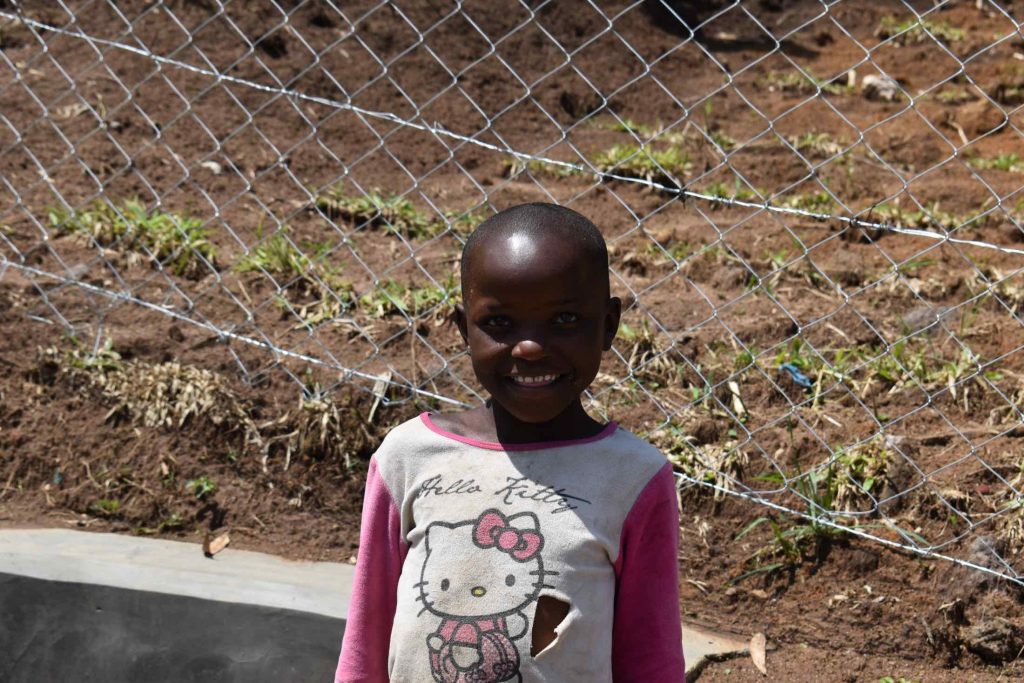
“I had suffered from a waterborne disease that kept me out of school for several weeks,” Lavender said in 2021. “But with this reliable, clean spring water, I’ll be back in school soon and save the wasted time.”
Lavender then shared her personal dream. “It will help me start my own poultry farm. I’ll [focus on] ducks, because they love a watery environment. [This] would later even raise money for my school fees.”
I loved reading about Lavender’s dream. I remember telling Andrea about it since we shared an office back then, and then telling Tom Murphy, one of our Program Officers, who was still training me at the time.
He told me that if I wanted, our Kenyan team could return to Lavender and get more of her story. I felt guilty, like I was wasting their time just to sate my curiosity. (Since then, I’ve learned that my Kenyan coworkers are usually very eager to receive a storytelling request!) Tom reassured me, and I sent over a few interview questions for the field officer to ask Lavender and her mom, Sheila.
I covered Lavender’s story in that year’s blog honoring the International Day of the Girl Child.
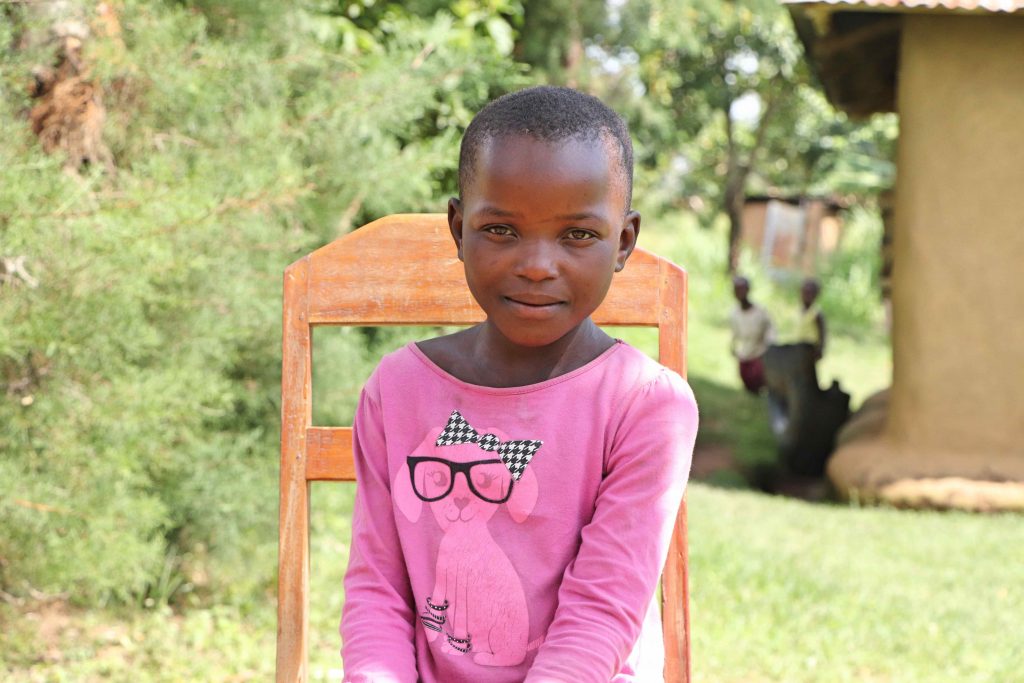
Lavender was eight years old then, and now she’s 11. And when I met her in person, I realized why duck farming was so high on her list of priorities.
Meeting Lavender, Four Years Later
To be honest, I was a little nervous to hear that I would meet Lavender. I don’t often interact with children, especially across a language barrier, so I wasn’t sure how the conversation would go. But as we got closer, bobbing and weaving to make it across dirt roads full of puddles and ruts due to heavy rains the night before, I was more excited and less nervous. Everyone in Kenya had been so incredibly welcoming to me, and I was learning that warmth is part of their culture in receiving visitors.
We pulled up beside a little mud house with an absolutely gorgeous compound — the grass was vibrantly green and well-kept. The chairman of the water user committee, who is also Lavender’s grandfather and the community’s oldest man (a respected position), came outside to meet us, dressed in a blue suit and smiling widely. We exchanged greetings and met up with the field officer, Rose Serete, who is well-known to the people of Shamoni since she worked with them to build their water point and has checked up on them regularly since then.
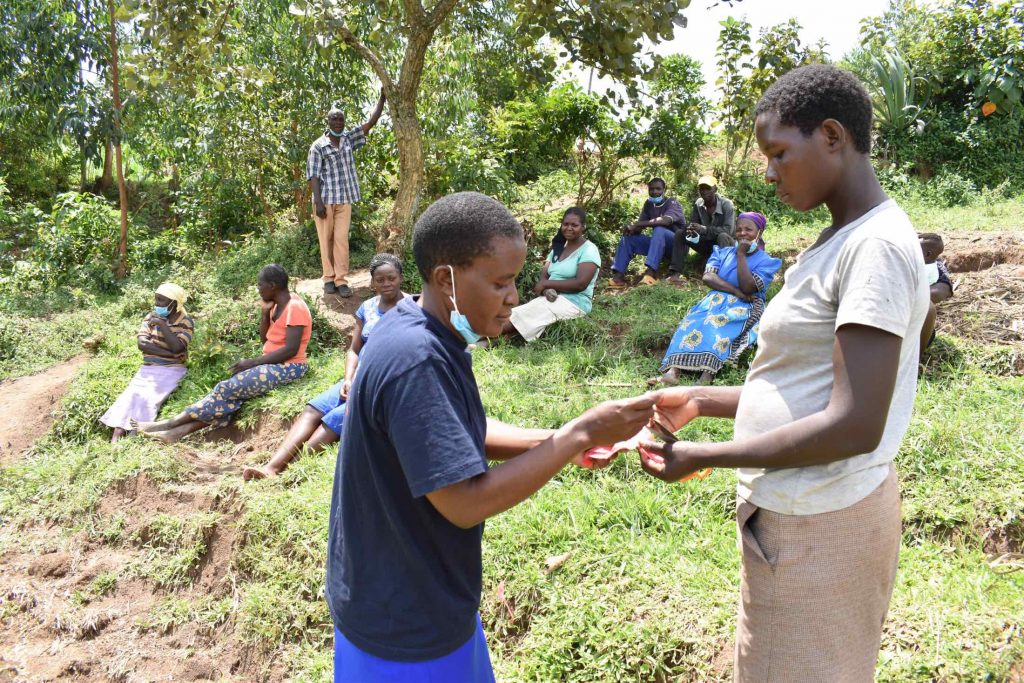
Lavender’s grandfather held my hand as he guided me down the hill leading to the spring, smiling and speaking Swahili words that I didn’t understand. I heard “karibu,” which means “welcome,” so it was easy to smile back at him. I almost fell a few times, as was becoming customary in all of my downhill/uphill walking in Kenya. Still, thankfully, there was always a hand ready to steady me, which is downright symbolic, now that I’m thinking about it!
Program Manager Emma Kelly and I looked around the spring, which was in great shape except for some unimportant wear on the tiles beneath the discharge pipe. The community had been taking good care of their water point; the drainage channel was well-cleared, and the spring was immaculately clean.
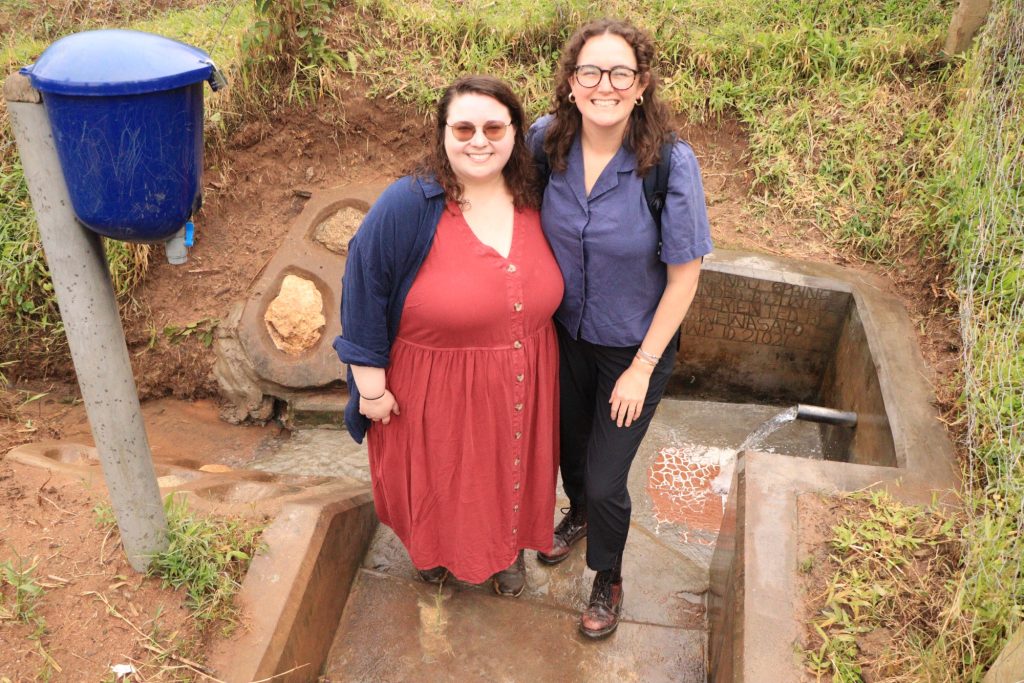
Then, finally, a young girl trotted down the hill after us — Lavender. I recognized her and her mother right away. I shook Lavender’s hand and greeted her mother, Sheila, who speaks fantastic English.
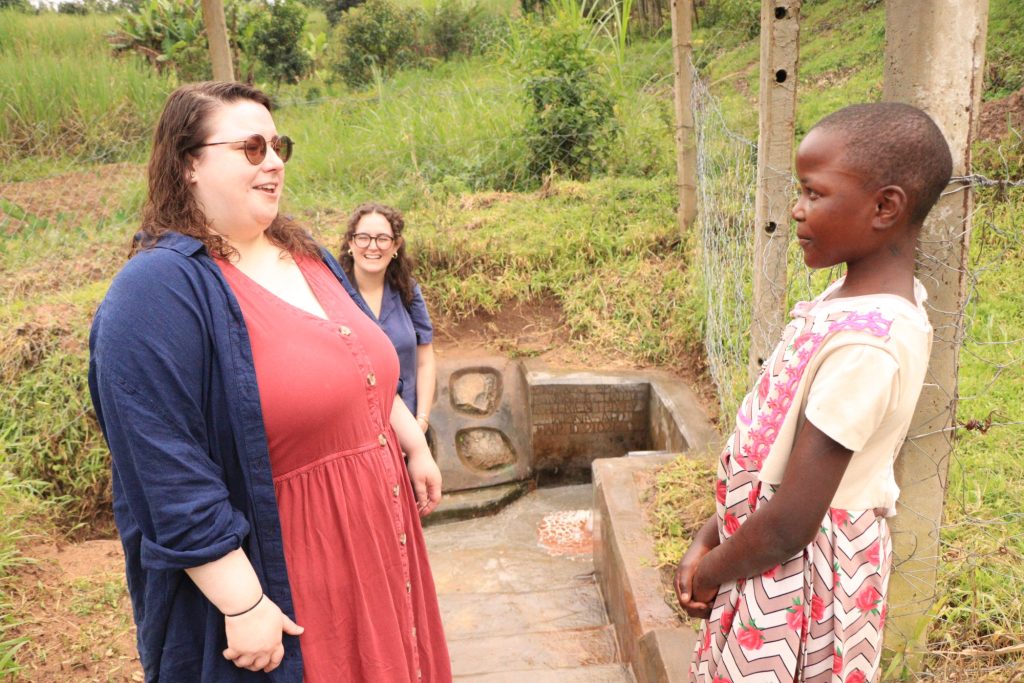
Olivia kindly translated for me as I explained to Lavender why I wished to see her. I said something like: “You must be wondering why this weird white lady is so interested in you. Your story was one of the first ones I wrote when I started this job, and you taught me the power of clean water. You showed me how, once your needs are taken care of, you can create new dreams for yourself.”
I asked if she’d started her duck farm yet, and she said she hasn’t, but her grandfather owns many, many more ducks than he did back in 2021, so she is practicing taking care of them and still has her dream ready for when she’s older. She actually skipped school to meet with me, which I felt a little guilty about!
After taking a picture together at the spring, we headed back up to the chairman’s house, where 20 or 30 community members had gathered to greet us, with more filtering in as we spoke.
I explained again to the rest of the community members why we had come, and they seemed very proud of Lavender — they smiled at her and sat her next to me in the circle of chairs.
The Power of Community
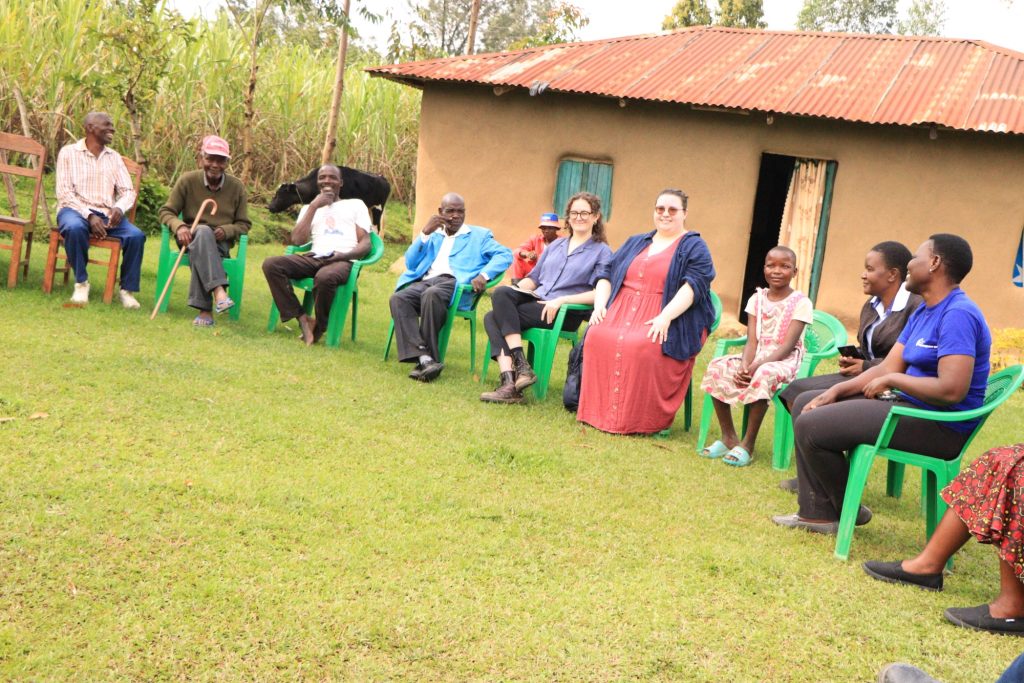
Emma and I asked everyone what their lives had been like before the spring was protected, what had changed, and what their plans are for the future. Many community members gave answers we’re used to — they now have reduced water-related illnesses, more time for other tasks, and more unity among the community members.
At one point, Lavender’s grandfather got up and spoke on behalf of his fellow community members. They teased him for the way he had responded, which made everyone laugh and led him to amend his answer to better suit the gaggle of onlookers.
One woman said she now only feeds her livestock clean water, as she noticed them getting sick from dirty water, too. She thinks their health has improved, so that when they are slaughtered, they are more nourishing to her and her family. A man said he lives downstream of the protected spring and is forming a scheme to create his own fish pond from the surplus water.
Toward the conclusion of the meeting, Erick (a manager on our team who had been moderating and translating) asked me if I would like to say anything. I thanked the community members not only for the warm welcome, but also for the exceptional way they’re taking care of the spring and of each other. For some reason, Erick didn’t need to translate this even though he’d translated everything else; the community members started clapping immediately. Erick teasingly asked them in Swahili why he had been translating the whole time if they understood, and everyone laughed again.
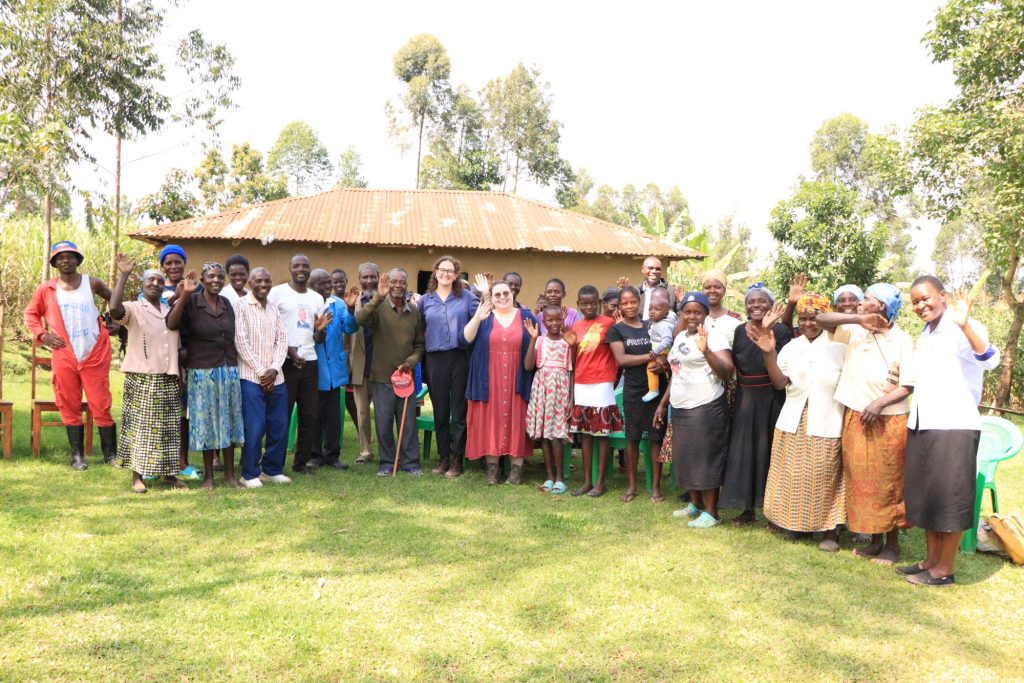
Then, something I hadn’t seen before happened.
Lavender’s grandfather got to his feet and asked his neighbors a question; their response was to start rubbing their hands together as if they were cold or cartoon villains planning evil schemes, and they then clapped in unison three times. He gestured to Emma, and they repeated the same procedure over again. Then, he gestured to me — except this time, they clapped four times. I knew by the expressions on their faces that this was positive, but didn’t grasp the full meaning.
Later, I learned from my Kenyan coworkers about the significance of their actions. The hand-rubbing was a gesture of respect, their way of saying, “You are welcome and valued among us.” The thought makes me want to tear up, even now.
To go about life now, back in the United States…it’s been an adjustment.
In Kenya, it’s impossible to take water for granted because so many people live without it. Every time I procured another bottle of water — from the team members, from my hotel, from a shop, or a vending machine — it became precious. A lifeline. I had to think about whether I could guzzle up the finite amount of water in that bottle whenever I was thirsty, because I didn’t know when I’d get my next one.
But I was only in Kenya for 12 days. Compared with many Kenyans’ homes, my hotel room was palatial. Comparing my low-grade mental burden while I was visiting with so many individuals’ daily water struggles feels wrong. My “burden” was hardly anything. Yet, these people — these kind, welcoming, unified people who help each other whenever things go wrong — had treated me with such respect.
In my heart, I knew I was the one who should have been honoring them. In America, we’ve lost that sense of community that Shamoni has fostered. We’ve lost our connection to water, which is so important to humanity and to the Earth.
The people of Shamoni used to face a lack of safe water. They asked for help from a local organization. They helped build a water point funded by donors. And now, even four years later, they’re still treating that water point with care, knowing what life was like without it. Me? I was born with piped water, and I didn’t think about the others who lacked that luxury until I joined The Water Project in 2021.
Lavender was the one who dared to dream despite her community’s water struggles. She saw her grandfather leading the community and running his own duck farm, and said, “I can do that to fund my own education!” when she was just eight years old.
When I wrote that blog about Lavender in 2021, she said she wanted to be a teacher like her English teacher, Miss Beatrice. If Lavender keeps working hard at going to school and caring for her grandfather’s ducks, she’ll soon be able to buy her own bird(s) to keep her education going.
Meeting the Ducks
After the gathering, Lavender walked me across the road to her family home, where her family members let all the birds out for a feeding.
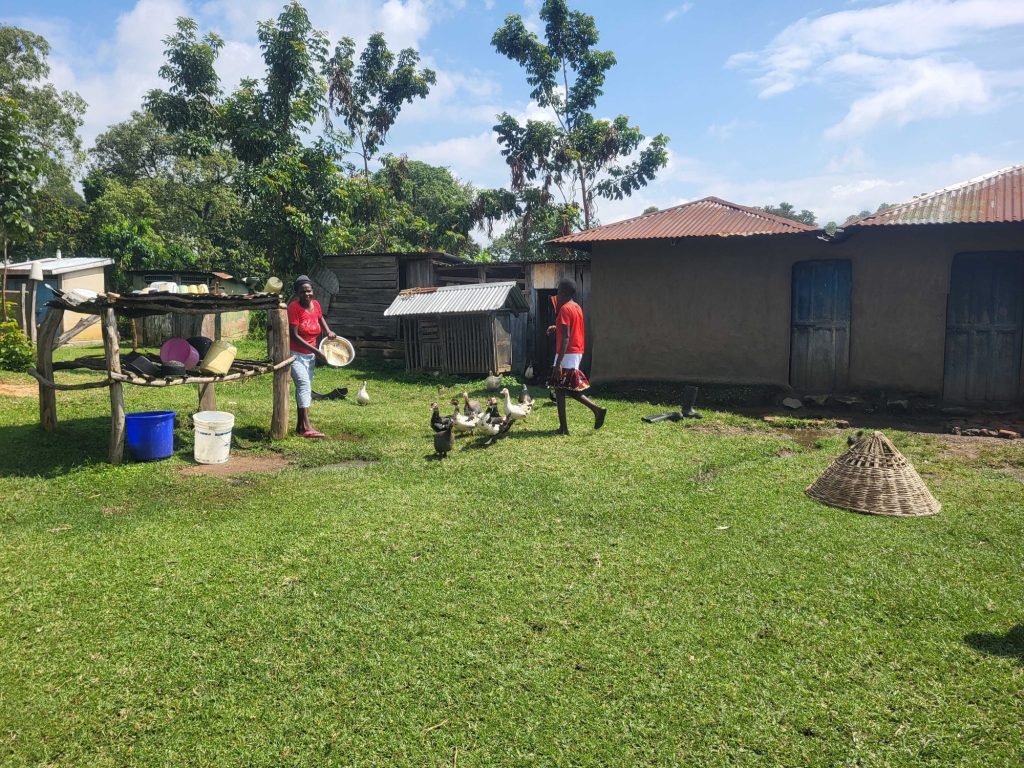
The birds gathered around Lavender, flapping their wings and making happy noises as she scattered bits of ugali on the ground for them.
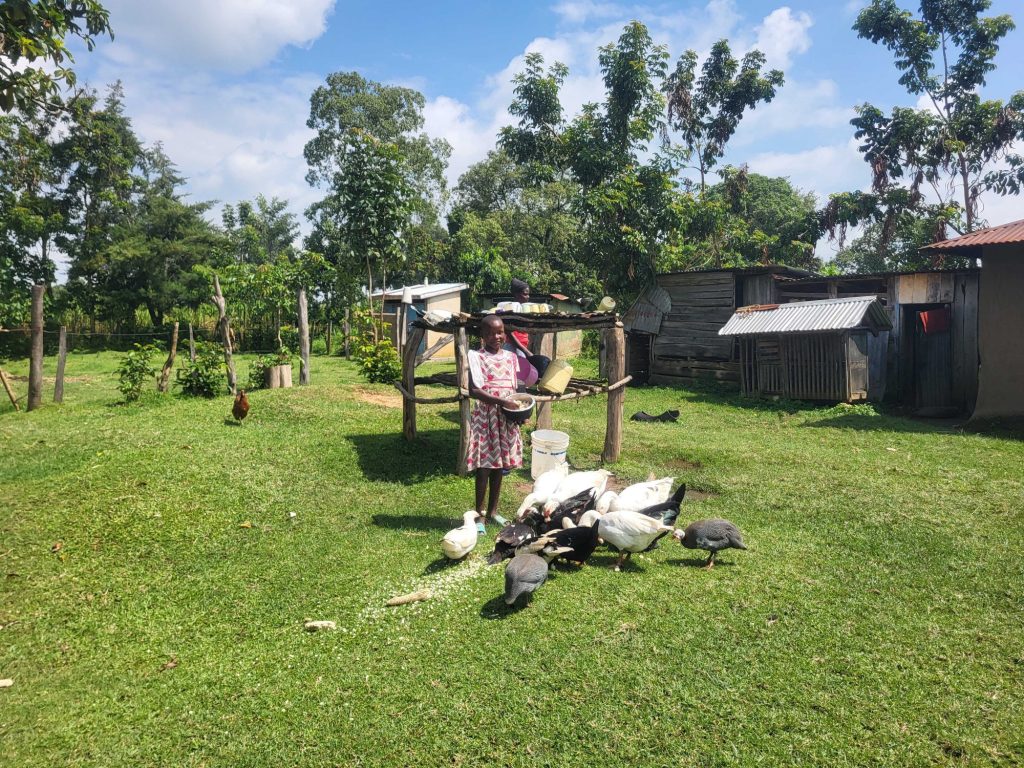
To me, it doesn’t matter that these were technically her grandfather’s ducks. Having met her mother and grandfather, and spoken with the people supporting Lavender and her dreams, I know she will be able to go to school as long as she would like to. She’s surrounded by a community full of people who care about her and her future. These people no longer spend all their spare funds on medication to treat water-related illnesses. They, too, are dreaming.
Lavender’s future is bright. And whether her dream to become a teacher changes as she grows up, if she keeps ducks or chickens or cows or nothing, I will still hold a place in my heart for her.
After this moment, I asked Olivia to translate for me so I could speak to Lavender one more time.
“I’m sorry if I made you uncomfortable today,” I said. I had been noticing Lavender’s shyness and reticence.
But she only shook her head and smiled.
So I went on. “I came here today because you’re special. You had a dream for your education. I hope you know that you can do it. You can become a teacher if you want. And I’m so happy I got to meet you and your family today.”
Lavender said in English: “Thank you.” It seems Miss Beatrice (her English teacher) has been doing good work!
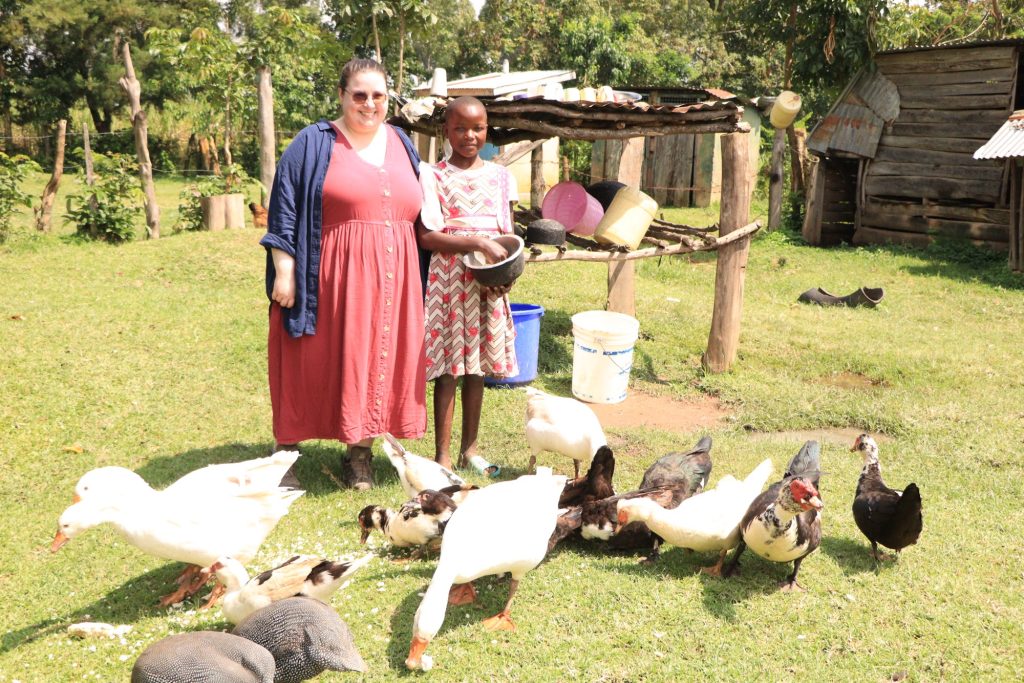
The chairman held my hand again as we walked back to the van. He told me Shamoni is now my second home, and urged me to come back.
Then, as we were leaving, a woman flagged our van down and handed in through the window some freshly roasted maize from her farm, which we happily devoured as we trundled over the muddy roads again. It was my first taste of maize (versus the sweet corn we have in America). It’s blander, but more fibrous, and with a bite to the kernels that I really liked.
Why Youth Need Water to Dream
I’m thinking about Lavender as we approach International Youth Day.
Every generation scorns the next, thinking that the newest inventions ruin young people’s minds and reasoning capabilities. Heck, people in the 18th and 19th centuries thought that reading fiction would hurt the minds of the young.
In the places we work, what really could hurt children’s minds is prematurely ending their education. As I’ve written before, staying in school in sub-Saharan Africa can be a struggle, especially for girls, whose educations aren’t always valued in the same way. Nearly a third of all children in Africa don’t complete primary school.
Lavender has access to safe, reliable water. The protection of the spring in Shamoni gave her an opportunity to dream. But there are still so many kids in the world — and in our work areas — who lack safe, reliable water. For them, holding space for dreams like finishing school or earning an income is painful.
This International Youth Day, as we celebrate kids who dream up solutions to the world’s problems, we need to remember that kids can only strive for better lives when they have the time, health, and education to do so.
Today, you can provide a water source that helps students follow their dreams and make the world a better place.
Lavender’s dream still shines, but it only became possible because her community no longer spends every day battling unsafe water. When you give a child access to water, you give them the gift of time, health, and possibility.
Home More Like ThisTweet